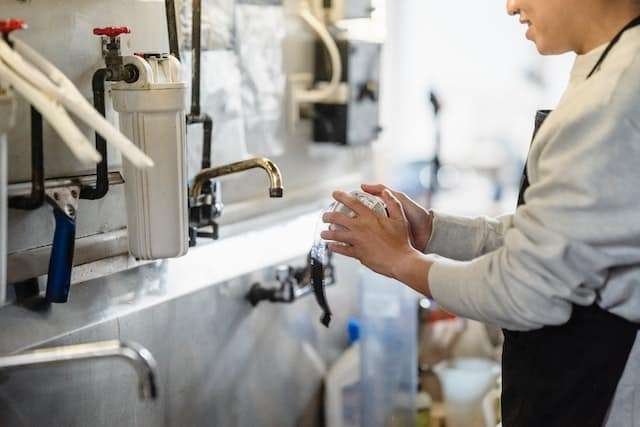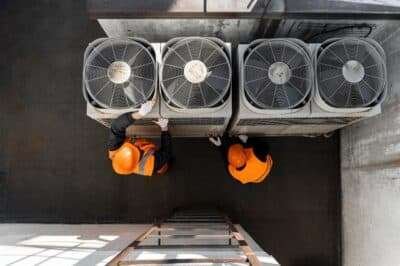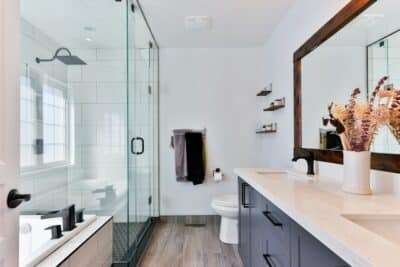Having plumbing problems in your home can be a massive headache. From leaky faucets to burst pipes, plumbing issues often seem out of nowhere and can cost money. The good news is that many common plumbing problems can be prevented with some simple maintenance and care. In this article, we’ll go over some easy ways you can help avoid the most prevalent plumbing problems in your home.
Regularly Inspect Your Plumbing
One of the best things you can do to prevent plumbing issues is to inspect your plumbing fixtures and pipes regularly. Check faucets, showerheads, and toilets for leaks and drips indicating worn washers or gaskets. Dripping faucets and leaky toilet flappers allow water to run constantly, increasing your water bill. Catch these minor leaks early before they become significant problems.
Inspect exposed pipes under sinks for signs of dampness, rust, or leaks. Lines inside cabinetry may go unnoticed until a leak springs or a pipe bursts. Checking under your sinks a few times a year can help you catch ruptures before significant damage occurs.
Also, look for soft spots or bulging in sections of the pipe that may indicate a future break or collapse. Address these potential pipe issues as soon as possible.
Maintain Your Fixtures
Many plumbing headaches start with your fixtures. Simple maintenance keeps faucets, showerheads, and toilets functioning correctly.
For faucets, regularly disassemble handles and spouts to remove mineral deposits and sediment that causes drips. Replace old rubber washers and O-rings that tend to wear out over time. Consider installing ceramic disc faucet valves, which last longer than traditional rubber pieces.
Remove buildup by soaking the head in white vinegar overnight to keep showerheads working efficiently. For stubborn deposits, use a store-bought showerhead cleaner.
Prevent toilet clogs and leaks by regularly replacing the flapper valve seal every few years. Check the chain connecting the flapper. It should have about 1/2 inch of slack to close properly after flushing.
Use Hair Strainers
Clogged drains are one of the most preventable plumbing headaches. Install inexpensive hair strainers in shower and sink drains to catch strands before they wind around pipes.
Clean hair filters monthly to keep water flowing freely. Once a month, flush drains with hot water to melt grease that sticks to pipes. Once a year, use a store-bought drain cleaner to break down any accumulated gunk or residue.
Insulate Pipes
Insulating exposed water pipes can help prevent freezing and bursting during cold weather. Pipe insulation is inexpensive and easy to install yourself. Use pre-split foam tubes that wrap around pipes and seal with adhesive.
Prioritise insulating pipes in unheated areas like crawl spaces, attics, and garages. Also, insulate pipes against outer walls where cold can transfer through.
In extreme cold, allow faucets to drip overnight to prevent freezing. Moving water has a more challenging time freezing than stagnant water inside pipes.
Know the Location of Shutoff Valves
Clearly label your home’s main water shutoff valve so you and other household members can quickly locate it in an emergency. This lets you turn off the water if a pipe bursts to minimize flooding and water damage.
Also, locate the shutoff valves controlling each toilet, sink, washing machine, water heater, and other fixtures. These let you isolate leaking or burst fixtures without shutting off all water in the home.
Please occasionally take a few minutes to operate your various shutoff valves to ensure they function correctly when needed. Replace frozen, rusted, or corroded valves right away.
Monitor Water Pressure
Excessively high water pressure places undue strain on pipes and fixtures, shortening their lifespan and making leaks more likely. Install a water pressure gauge on your home’s main water line.
Ideal water pressure falls between 50-60 PSI (pounds per square inch). If your home’s pressure exceeds 80 PSI, install a pressure reduction valve to prevent damage.
Also, inspect your home’s water pressure regulator valve every two years. Replace this valve if it’s no longer functioning correctly to moderate pressure.
Upgrade Old Pipes
If your home has aging galvanised steel or cast iron pipes, consider replacing them with modern copper, PEX, or CPVC piping. Older lines become corroded and clogged over decades of use.
Replacing outdated drain pipes with smooth PVC eliminates bellies that can catch debris. Have a plumber install new lines to ensure proper angles and prevent low spots.
If complete replacement isn’t possible, consider repiping the most problematic sections prone to blockages or leaks. Over time, update the remaining pipes as you renovate.
Hire a Professional for Big Jobs
Some plumbing projects require specialised tools and expertise. Leave major repiping jobs, main sewer line augering and whole-house remodels to qualified professionals. A licensed, bonded plumber has the equipment and experience to handle large-scale plumbing tasks.
Attempting major plumbing work as a DIY project can result in costly mistakes. The fees charged by a professional plumber will be less than if a botched DIY job requires repairs.
Have an Aquatrade Plumbing technician inspect new installations of water heaters, sump pumps, tankless heaters, and other complex systems to ensure proper function. Correct any issues upfront before they turn into big problems down the road.
Implement a Preventative Maintenance Schedule
Plumbing upkeep is often out-of-sight, out-of-mind until an emergency repair is needed. Avoid getting caught off guard by issues through preventative maintenance.
Mark your calendar with regular intervals for simple plumbing tasks like inspecting fixtures, cleaning drains, and operating valves. Annual servicing by a professional can catch minor repairs before they become major.
The small amount of time invested in plumbing prevention can pay off exponentially by letting you avoid massive headaches from burst pipes, flooded basements, and costly repairs. A minor plumbing TLC goes a long way.
Staying on top of your home’s plumbing system catches problems while they are still manageable. Implementing simple maintenance habits keeps your pipes clear, fixtures functioning, and water flowing correctly for years. You can prevent the most common plumbing mishaps with just a little effort.







